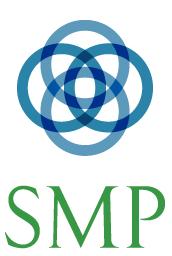-
-
-
-
Code of Ethics
-
-
-
-
-
-
-
-
-
-
-
-
-
-
-



Code of Ethics
Preamble
Modern psychoanalysts subscribe to the highest standards of ethical
conduct in the course of their professional activities. This Code is
intended to guide the Society’s members in their professional work as
psychoanalysts, supervisors, teachers, researchers, and in other
professional capacities in their relationships to each other and their
patients or clients, as well as with external agencies and the general
public. The aim of the guidelines that follow is to protect and promote
the welfare of individuals and society as a whole and to be in harmony
with the law through the use of modern psychoanalytic principles.
1. Relationships Between Analyst-Patient/Supervisee/Student/Client
1.1 Analyst and analysand/supervisee/student/client determine by
mutual agreement the length and frequency of sessions, the time and
place where the sessions will be held, the cost and method of payment,
the conditions for cancellation of sessions, and other issues that may
arise, as early as feasible and appropriate. Other aspects of, or
changes in contractual arrangements are discussed as they arise in the
treatment or other contractual agreement.
1.2 Members have a primary obligation to respect the confidentiality
of information revealed in the course of treatment by an analysand. The
exception is when the analysand and/or the community need to be
protected from imminent danger in compliance with the requirements of
the law.
1.2.1 As appropriate, analysands are informed of the legal limits of
confidentiality and under what conditions information revealed in the
analysis may be disclosed, and to whom.
1.2.2 It is the member’s responsibility to maintain confidentiality in
the storage and disposal of records. An analyst may release information
obtained in an analysis only with the prior authorization of the
analysand or parent or guardian, in compliance with the law.
1.2.3 Except when consulting with colleagues in the interest of the
treatment, members obtain consent from an analysand before presenting
personal information revealed during the course of their professional
activities and disguise all identifying information.
1.3 Members neither misrepresent their academic and/or professional
training and/or experience, their professional affiliations, nor the
limitations of psychoanalysis either to
analysands/students/supervisees, clients or the public. Members do not
diagnose, prescribe for, treat, or advise on issues outside the limits
of their own competence.
1.4 Members avoid all forms of physical contact of a sexual or other inappropriate nature.
1.5 When expressing professional opinions, members do not purport to
speak on behalf of the Association or to represent its official
position except as authorized by the Board.
1.6 Members involved in scientific or scholarly research abide by
established ethical norms in the academic community in the conduct of
their work.
1.7 Members comply with all laws, rules and regulations of any
governmental authority having jurisdiction over him/her and by the
guidelines for professional conduct set forth in this Code of Ethics.
Professional Misconduct
1.1 The Board of Trustees may impose appropriate sanctions or
termination of membership upon a member, if the Board, or one of its
committees responsible for governing appropriate professional conduct
or practice, determines that such applicant or member has committed
professional misconduct.
1.2 The member upon whom the sanction or termination has been imposed
has the right to appeal following guidelines determined by the Board of
Trustees. Such appeal procedures will be submitted in writing and made
available to all members.